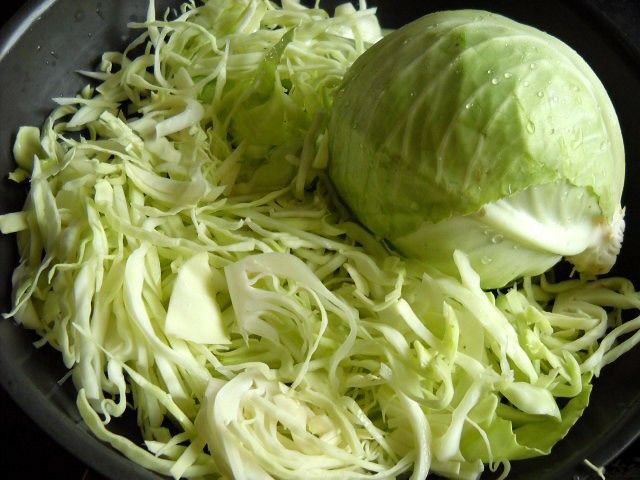10 Proven Health Benefits of Cabbage

Benefits of Cabbage for health that you need know. Espite its impressive nutrient content, cabbage is often overlooked. While it may look a lot like lettuce, it actually belongs to the Brassica genus of vegetables, which includes broccoli, cauliflower and kale.
It comes in a variety of shapes and colors, including red, purple, white and green, and its leaves can be either crinkled or smooth. This vegetable has been grown around the world for thousands of years and can be found in a variety of dishes, including sauerkraut, kimchi and coleslaw. Additionally, cabbage is loaded with vitamins and minerals.
In fact, just 1 cup (89 grams) of raw green cabbage contains:
the cabbage is rich in several rich nutrients such as: Calories, Protein, Fiber, Vitamin K, Vitamin C, Folate, Manganese, Vitamin B6, Calcium, Potassium is Magnesium
Helps Detoxify the Body: Cabbage is packed with vitamin C and sulphur, both of which remove toxins such as free radicals and uric acid from the body.
Free radicals cause peroxidization of tissue stores, which may lead to the proliferation of malignant cells. Flushing out free radicals does a great deal to reduce the cell-damaging toxins in your body. Then, check the benefits of Cabbage for health
Antioxidant: Red cabbage has polyphenols, which are powerful antioxidants that are good for the brain and heart health. They also have gulcuosinolates, which are cancer-fighting antioxidants.
Promotes Brain Health: Cabbage is rich in iodine which improves brain function and keeps the nervous system running. Iodine also helps prevent and treat neurological disorders such as Alzheimer’s disease.
Prevents Roughage Deficiency: A lack of roughage, a fibrous indigestible material found in vegetables that helps remove waste products through the gut, can mess up your whole digestive process. Roughage deficiency leads to constipation, which in turn can cause stomach ulcers, indigestion and even cancer.
Cabbages are rich in fiber, which is the main health benefit of roughage. So eat cabbage to keep your digestive system in order.
Weight Loss: Cabbage is packed full of beneficial vitamins, minerals, fiber and other nutrients and low in calories.
If you eat a whole pile of cabbage you will feel full and get plenty of your required nutrients, but not gain many calories. It is also cheap, so it is a great food for eating healthy on a budget.
Lowers Blood Pressure: Cabbage is rich in potassium, which helps regulate blood pressure by counteracting the harmful effects of excess sodium in your body.
Regulates Blood Sugar: Ever wonder what the difference is between red cabbage and the green varieties? Red cabbage is colored by betalains, a natural red pigment that gives cabbage and beets their distinctive color.
It also lowers blood sugar levels and aids in insulin production.
Reduces Muscle Aches: When certain bacteria ferment the sugars in cabbage during the preparation of sauerkraut, lactic acid is released.
It isn’t the easiest compound to find in a diet, but it has been shown to reduce muscle soreness and aches, so in some small way, cabbage can help general pain relief and muscle soreness, depending on how it is prepared.
Detoxifies the Body: Cabbage acts as a good detoxifier too, meaning that it purifies the blood and removes toxins, primarily free radicals and uric acid which are the main causes of rheumatism, gout, arthritis, renal calculi, skin diseases, and eczema. This detoxifying effect of cabbage is due to the high content of vitamin C and sulfur in cabbage.
Other Benefits Of Cabbage: Cabbage, being rich in iodine, helps in proper functioning of the brain and the nervous system, along with keeping the glands of the endocrine system in proper condition. It is good for the brain and is useful in the treatment of neural disorders such as Alzheimer’s disease.
The other nutrients present in cabbage, such as vitamin-E, keep the skin, eyes, and hair healthy. The calcium, magnesium, and potassium found in cabbage are very useful for a wide range of health benefits. Cabbage can also be used for the treatment of varicose veins, leg ulcers, peptic and duodenal ulcers.
Cabbage Caution Those with thyroid problems should avoid eating large amounts of cabbage. It interfere with the body’s absorption of iodine, needed by the thyroid gland. This applies to all cruciferous vegetables. There is a cabbage for every flavor pairing and meal.
